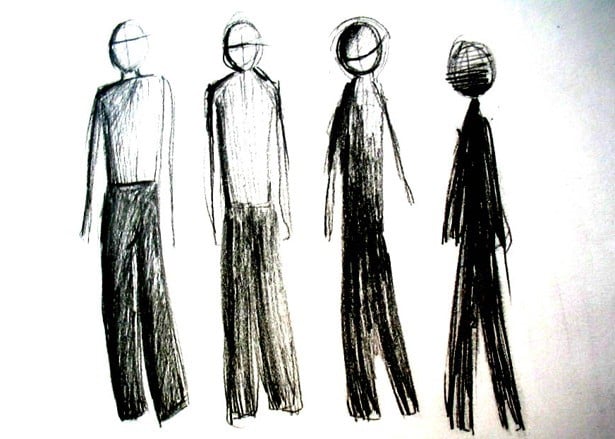
Making decisions regarding our own health, be it mental health, is the basic right of every person. The patient’s family and society need to recognise this

‘Liberté, égalité, fraternité’ (liberty, equality, fraternity) is one of the slogans of the French Revolution, 1789.
Once my patient A* (not her real name) was brought to my clinic, it became obvious to me that she needed treatment. Luckily, despite her deteriorated condition, she was willing to take injectable medication. This was fortunate since she was living by herself, and there was no way to ensure that she took her medications regularly.
Injectable medications can be given once or twice a month and are thus easier to manage.
At her next clinic visit a week later, after her first injection, she appeared calmer and her conversation appeared more logical with less paranoia and delusional thoughts.
She has stayed in touch with me off and on and, for the moment, appears to be managing but it is a delicate situation, fraught with uncertainty. If she decides she does not need to take the injection regularly, there is no recourse for the family or for doctors to treat her since the hospital option is now off the table.
In most cases of this type though the person receiving treatment does not have the know-how or the resources to do what A* did i.e. petition the court and get herself released from involuntary detention at a psychiatric hospital.
In most similar cases, treatment continues for several weeks by which time the person’s symptoms subside, and they become more amenable to continuing treatment of their own free will. Of course, the coercive nature of their treatment plays a role in their willingness since they have realised that only by cooperating will they secure an eventual release from the hospital.
This, once again, begs the question of who decides when a person should be deprived of their freedom and incarcerated in a hospital? A doctor, a judge, a spouse, sibling, parent? And on what basis?
Read also: Of life and liberty – I
It is not uncommon for family members to force a person into a psychiatric hospital for less than honourable motives: property disputes, marital problems, personal animosity or simply a desire to control the other person’s actions and behaviour.
This question, of how much freedom an individual enjoys in society and who has the right to deprive them of it was one of the central questions of the Anti-Psychiatry Movement in the West in the 1960s. The general political and social discontent in the world at the time (including the civil rights movement and the anti-Vietnam war movement in the United States, the various Left social movements in Europe) resulted in a vigorous re-examination of all aspects of social and cultural life.
Even in Pakistan, this ferment would eventually lead to an energetic student movement which would result in the fall of the country’s first military dictatorship in 1968.
This general upheaval affected psychiatry as well and many leading lights of the field at that time formulated the theory that psychiatric treatment, particularly forced treatment in hospitals, was brutal and barbaric, and constituted an inhumane form of ‘social control’. The most strident of these critics labelled the entire field of psychiatry and mental health treatment a form of social control and advocated that the most humane way of dealing with mental illness was, in effect, to do nothing.
To their credit, they did point out that mental illness was a rational response to intolerable social, and familial conditions and if society had a desire to do something about mental illness, it should fix those social and economic conditions which were at the root of these illnesses.
But, of course, social change takes place over decades or sometimes centuries. If one compares the world today to the world that existed a hundred years ago, much has changed and the drivers of the change were both natural conditions as well as human effort. One thing that families and loved ones of those with mental illness don’t have is time. When your spouse is tearing off his or her clothes, attacking you with a knife or threatening to jump off the roof, you cannot wait for social conditions to change. You have to act. And to be honest, even the most staunch opponents of psychiatry never argued for not treating severe mental illness (even though they advocated radically different methods of treatment; more on that, perhaps, some other time).
As things currently stand, here in Pakistan, what we need urgently is to adopt some aspects of European and American psychiatry regarding the treatment of those with severe mental illness. And our own Mental Health Act, if implemented in letter and spirit would, to a large extent, resolve some of the most egregious issues. For example, no one should be confined to a psychiatric hospital against his or her will just on the report of a family member or a single doctor.
In the US, at least two doctors’ consent is required before you can initiate an ‘emergency hold’ on a patient with mental illness. And that too for only 72 hours after which they have to be presented before a judge. At each step of the way, the alleged patient has the right to plead their own case before a court of law.
This of course also requires that the patient’s family and society recognise that making decisions regarding your own health is the basic right of every person. In some ways, this clashes with our ‘collectivist’ culture where all decisions are familial and communal but there is a way to balance freedom and social responsibility. And freedom over our own bodies and minds is the basic right of every human being, or should be, in any society that claims to be civilised.
-- Concluded.